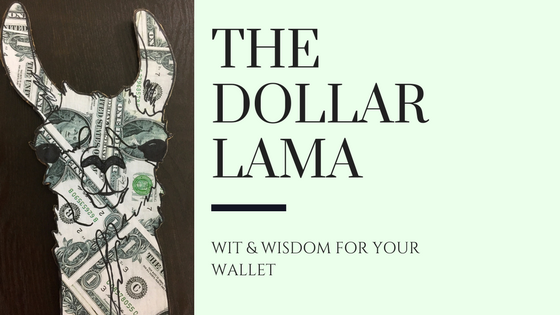I did a video not too long ago about why people who are making regular student loan payments on their federal loans aren’t seeing their student loan principal go down. I did this video to answer the most common question I get with student loan debt that goes a little something like this: “how come I started out with $20,000 in student loans and now I owe $60,000?” Of course, the numbers differ but, you get the gist.
For More In Depth Information
If you want to more personal finance tips and strategies, including 5 Student Loan Debt Payment Tips, enter your information and click on "Learn More!"
Check your email for FREE gift details!
The answer to this question boils down to one simple fact, your balance isn’t going down because of how interest accrues on your debt. The truth is, borrowers aren’t given clear information about how interest is treated on federal student loans. And believe me, it can be complicated (unnecessarily so, in my opinion). If you don’t understand how interest is working against you on your student loan debt, you could wind up owing two, three or even four times as much as you originally borrowed.
You may be asking, “how can I get a handle on the interest on my student loans to avoid the interest trap?” First things first, you need to know what your interest rates are. The best way to keep track of all the information about your student loans is by using my Student Loan Servicer Spreadsheet that you can download for free here. Make sure you check out the National Student Loan Data System website, too. You should be able to get information about your student loans and servicers there.
Just remember, you can’t manage something if you don’t measure it. This means you need to know the terms of your loans before you can begin to get a handle on them. Even if you don’t take anything else away from this post, make sure you download the spreadsheet and fill it out. If you do, you’ll already be on your way to making some headway with your student loans.
Once you’ve got your spreadsheet filled out, you need to understand what capitalizing interest means. The shortest way I know to explain capitalized interest is to say that interest you are charged is added to your principal balance and then you are charged interest on your new, bigger principal balance. Ultimately, you are now paying interest on interest. See how it works? And that cycle continues on and on until, before you know it, your student loan debt principal balance has ballooned to two, three or four times more than your original balance. This concept is critical in understanding why your student loan debt principal doesn’t go down even though you are making your payments like you’re supposed to.
The next question to ask is when is interest capitalized on each of your loans? Here’s where things get tricky for two reasons. First, student loan interest is treated differently depending on the type of loan you have AND the type of repayment plan you’re in. Second, the servicers handling student loans don’t do a great job of explaining how interest works on each student loan or repayment scenario. In addition to that, when borrowers ask for help with their payments, servicers direct them into forbearance rather than working with them to determine the best course of action for each borrower’s situation.
So, what can you do to figure out your student loan interest situation? Ideally, you should be able to get your servicer to explain to you what your options are and to help choose the best course of action for you. However, servicers are not your advocate. They are not legally required to act in your best interest. They are for-profit, third party companies who are contracted by the Department of Education to service your loans. In order to get them to assist you, it’s important to be thorough about your documentation and to be persistent about asking questions. A good rule of thumb is if you don’t understand something, keep asking until you do. You can be successful in managing your student loans with assistance from your servicer if you understand that YOU are your own best advocate. It’s your job to make sure your student loans are on track, not the Department of Education’s.
What if your servicer isn’t helping you? If you feel like you need more help with your student loan interest situation, I can help with that. Check out my Student Loan Debt 101 webinar by clicking here.
Finally, I want to leave you with this piece of advice. Avoid forbearance if you can because interest will be charged during forbearance on any loan you have (unsubsidized AND subsidized). When your forbearance period is up (the term is one year), the interest that accrues during that year is immediately capitalized. That, my friends, is how your student loan debt continues to grow out of control. Avoid the interest trap if at all possible, take control of your student loan interest today!
P.S. Make sure you check out my online courses, books and resources, too! Investing in your money management education is an investment in yourself. That’s the best investment you’ll ever make, I guarantee it!. Don’t forget my weekly Facebook live videos on Facebook.com/newcashview, Instagram @joyalfordbrand and on my YouTube channel NCVTV. You can catch me twice, on Mondays between 3:00 p.m. and 4:00 p.m. for my Monday Money Management Minute and Thursday evenings between 7:00 and 9:00 (Eastern Standard time), for my weekly NCVTV episode. They are packed full of useful and entertaining money management information! If you’ve missed any NCVTV episodes, you can see the latest on newcashview.com or you can check out my YouTube channel and get caught up! You can get there by clicking here. Remember, like and share the NCVTV videos on Facebook and all your social media platforms, so others can benefit from them, too!
#studentloanlama #studentloandebt

GET INSTANT ACCESS
Download your FREE gift!
To learn 5 Student Loan Debt Payment Tips, enter your info and click on download.
Check your email for FREE gift download!

